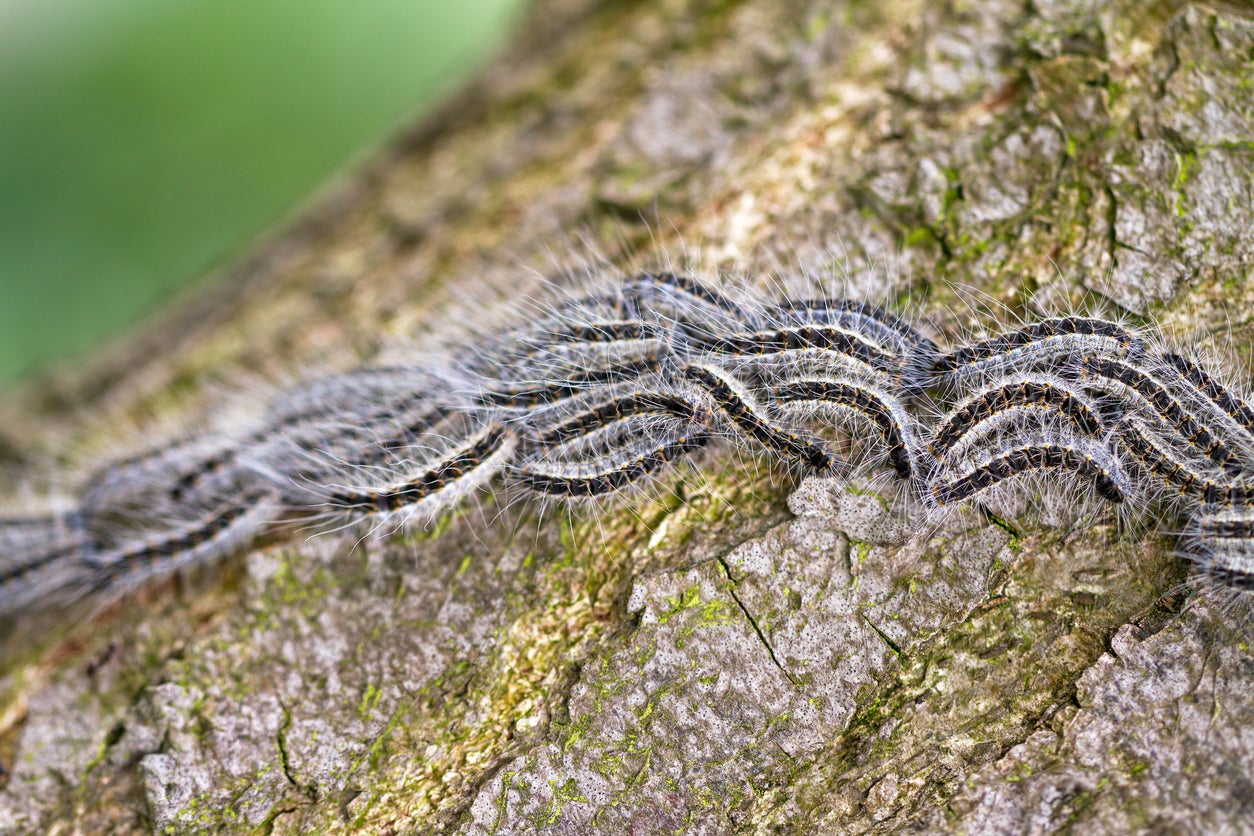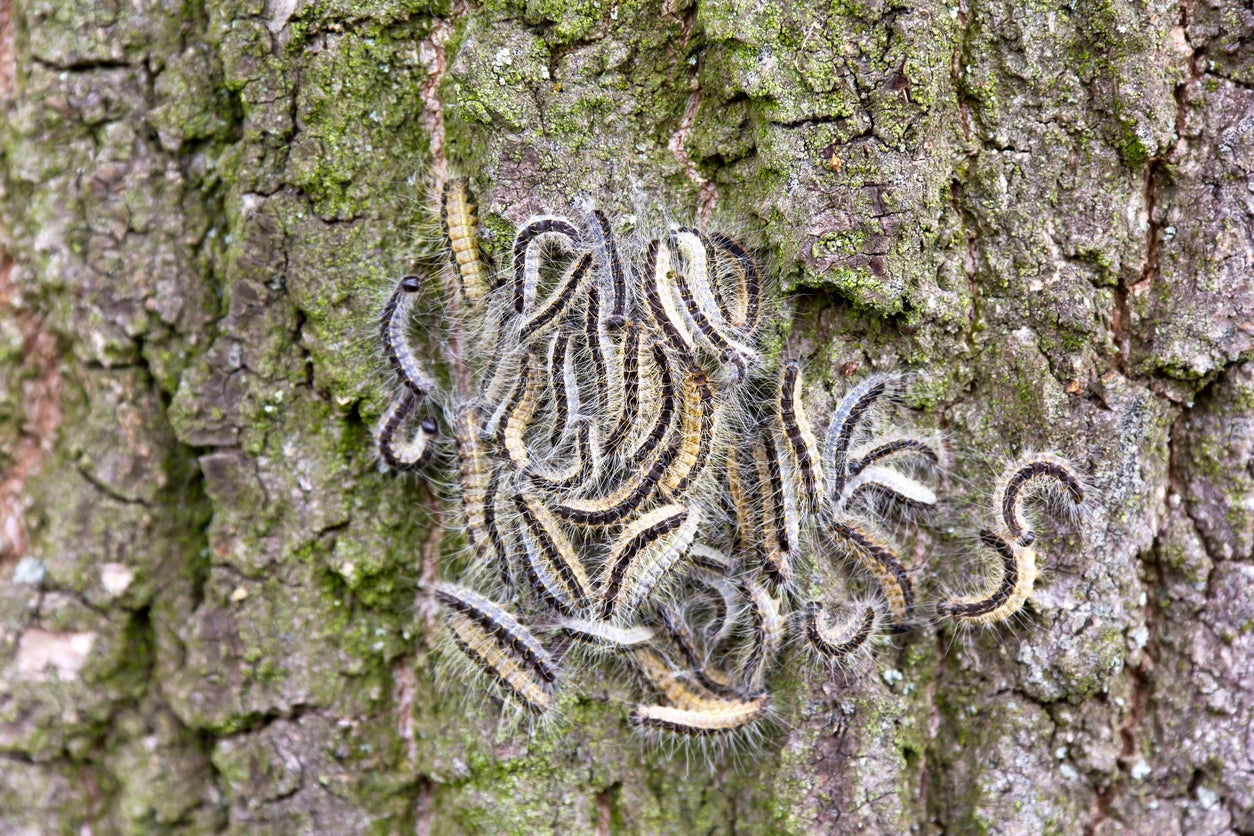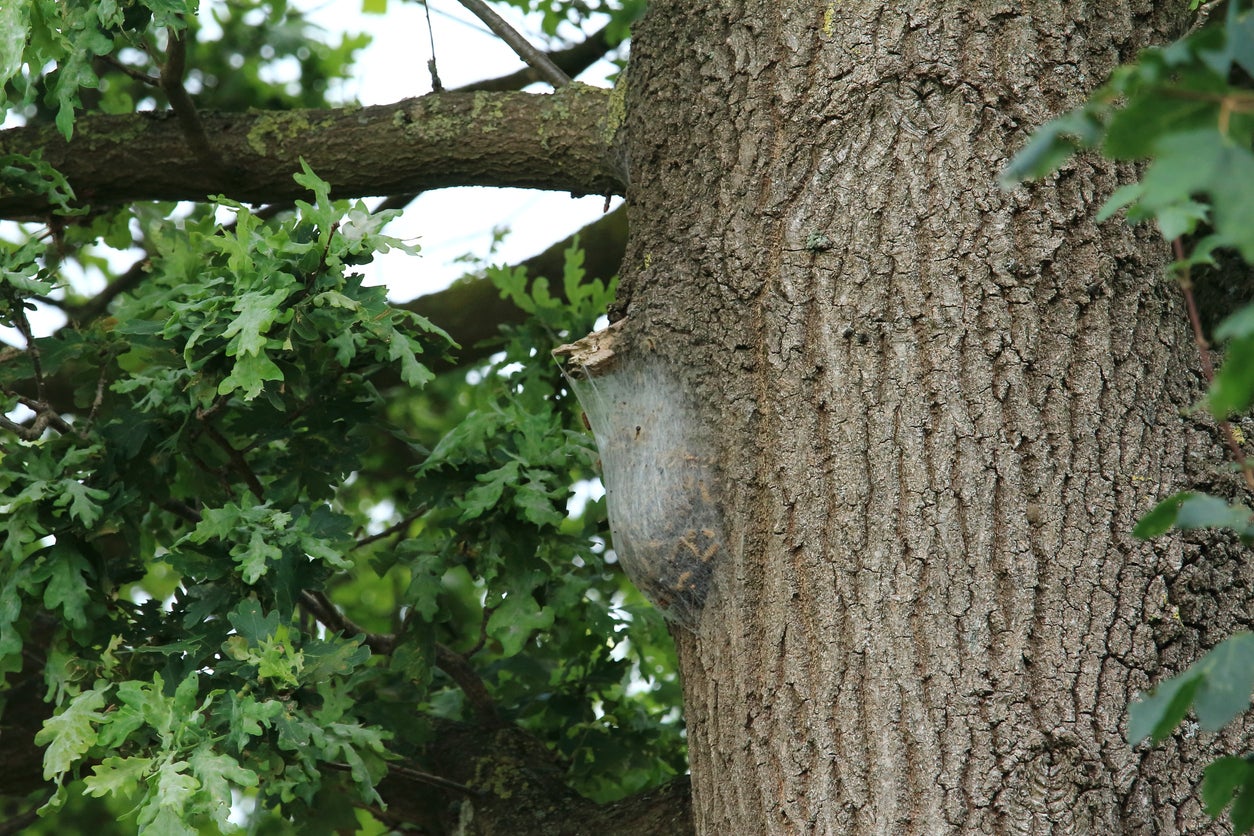Warning over toxic caterpillars in England as experts tell nature-lovers not to touch them
The oak processionary moth caterpillar can cause rashes and breathing difficulties and people and damage to oak trees

The public have been warned to be wary of toxic caterpillars that can give rashes to people and cause damage to oak trees.
The oak processionary moth caterpillars were first spotted in London in 2006 and have since spread to the south east of England.
The caterpillars have black heads and are covered in long white hairs which contain proteins that can cause itchy rashes and irritate the throat and eyes.

Contact with the caterpillars can also occasionally cause breathing difficulties in people and pets, so they should not be touched under any circumstances.
Oak processionary moth caterpillars also feed on the leaves of several species of oak trees.
This can cause the trees to lose their leaves therefore negatively impacting their growth and making them vulnerable to drought and other issues.
The caterpillars emerge between May and July to feed before turning into adult moths.

Andrew Hoppit, Oak Processionary Moth Project Manager, said: “At this time of year, many of us enjoy being outdoors in green spaces of all kinds.
“If you live in London and the surrounding areas, it’s really important for you to be aware of the health risks posed by tree pests like oak processionary moth.”
He urged members of the public are to report any sightings to the Forestry Commission via their TreeAlert portal.
The governmental Department for Environment, Food and Rural Affairs said they have already committed £10 million over the last five years to tackle the pest, and alongside the Forestry Commission, they’re set to launch a grant from 18 May to help tackle oak processionary moth.



Join our commenting forum
Join thought-provoking conversations, follow other Independent readers and see their replies
Comments